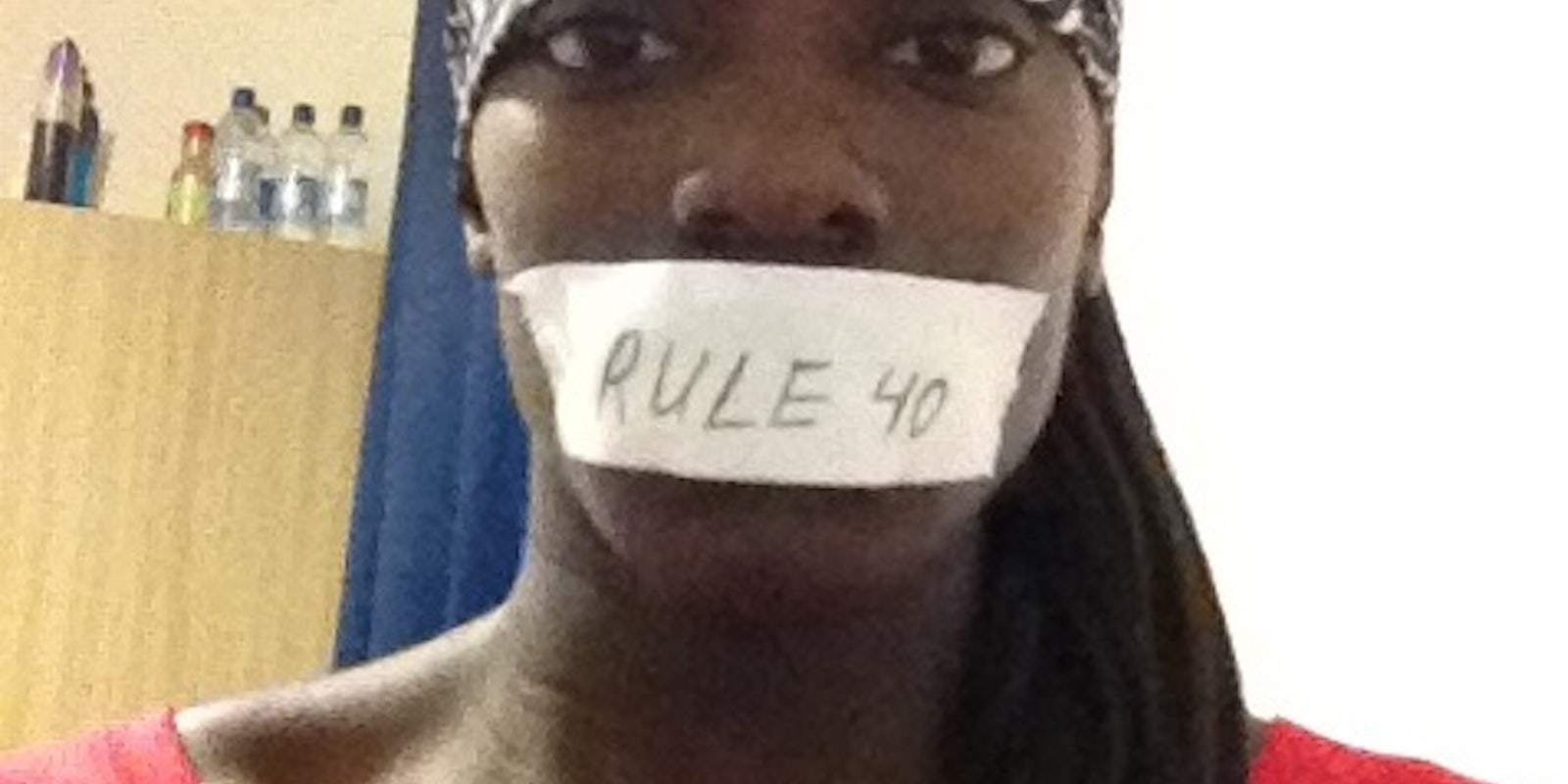The International Olympic Committee (IOC) is trying to deal with Twitter problems with both spectators and athletes at the 2012 Olympic Games.
Those on-site to watch the games are apparently affecting television coverage by tweeting and texting too often, while those competing for glory took to the community to complain about strict rules governing advertising.
The IOC urged fans in attendance to be more picky in their use of their phones. Tweeting and texting too much is interfering with some of the technology used to give a more effective broadcast.
In particular, data networks were overloaded Saturday as hundreds of thousands of people lining the streets of London tweeted as Brit Mark Cavendish sought a medal in the men’s cycling road race. This reportedly interfered with GPS navigation systems which sought to reveal how far ahead the race leaders were of the rest of the pack.
“Of course, if you want to send something, we are not going to say ‘Don’t, you can’t do it’, and we would certainly never prevent people,” an IOC spokesman urged Sunday, according to Reuters. “It’s just – if it’s not an urgent, urgent one, please kind of take it easy.”
The IOC is facing dissention within the ranks as well, as athletes complain about rules governing advertising, noted Wired. Despite many athletes making their living through sponsorships, the only commercial advertising allowed during the games is from official Olympic sponsors like Adidas, Visa, and Coca-Cola. However, the millions of dollars they spend go to the IOC, not the athletes, even though the competitors are routinely adorned in those sponsors’ logos.
“Except as permitted by the IOC Executive Board, no competitor, coach, trainer or official who participates in the Olympic Games may allow his person, name, picture or sports performances to be used for advertising purposes during the Olympic Games,” Rule 40 of the Olympic Charter stipulates.
A number of athletes, particularly those from the U.S. track and field team, complained about the rule on Twitter Sunday night. Hurdler Dawn Harper tweeted a photo of her mouth covered by tape with the message “Rule 40.” Others posted tweets reading “I am honored to be an Olympian but, #rule40 #WeDemandChange.”
Athletes in some countries receive financial support from their governments and national Olympic committees. It’s rare that U.S. athletes are funded by such bodies.
The issue has been bubbling under the surface over the last couple of weeks. Wired spotted that sprinter Sandi Richards-Ross, who retweeted a number of posts by her teammates on the issue, tweeted her concerns using the #WeDemandChange hashtag back on July 20: “With $6 billion exchanging hands during the Olympics why do the athletes compete for free?!? #QuestionsThatNeedAnswers #WeDemandChange.”
Twitter gives all spectators and athletes a voice, yet those murmurings are certainly nipping at the IOC’s heads.
Photo via Twitter


